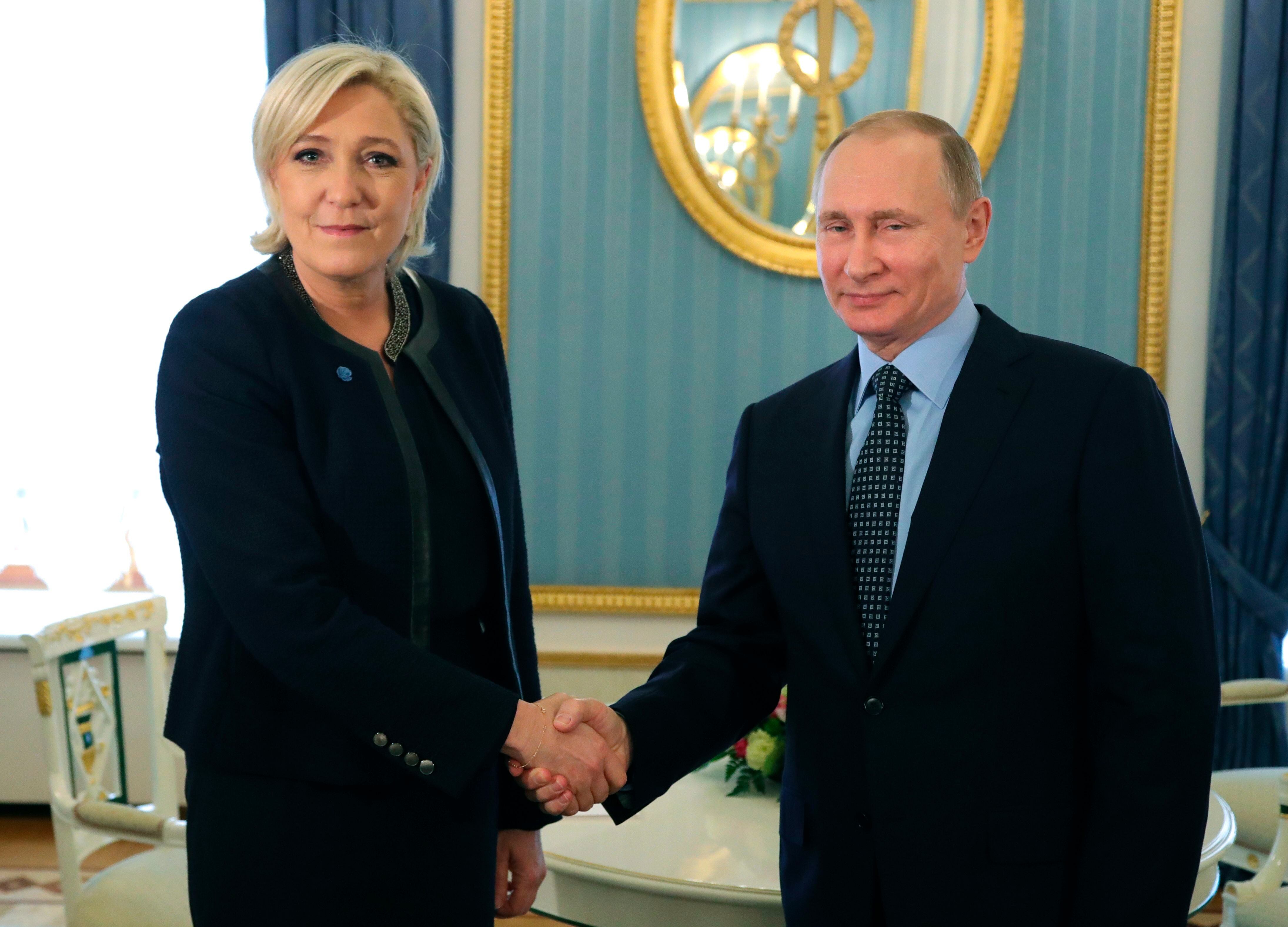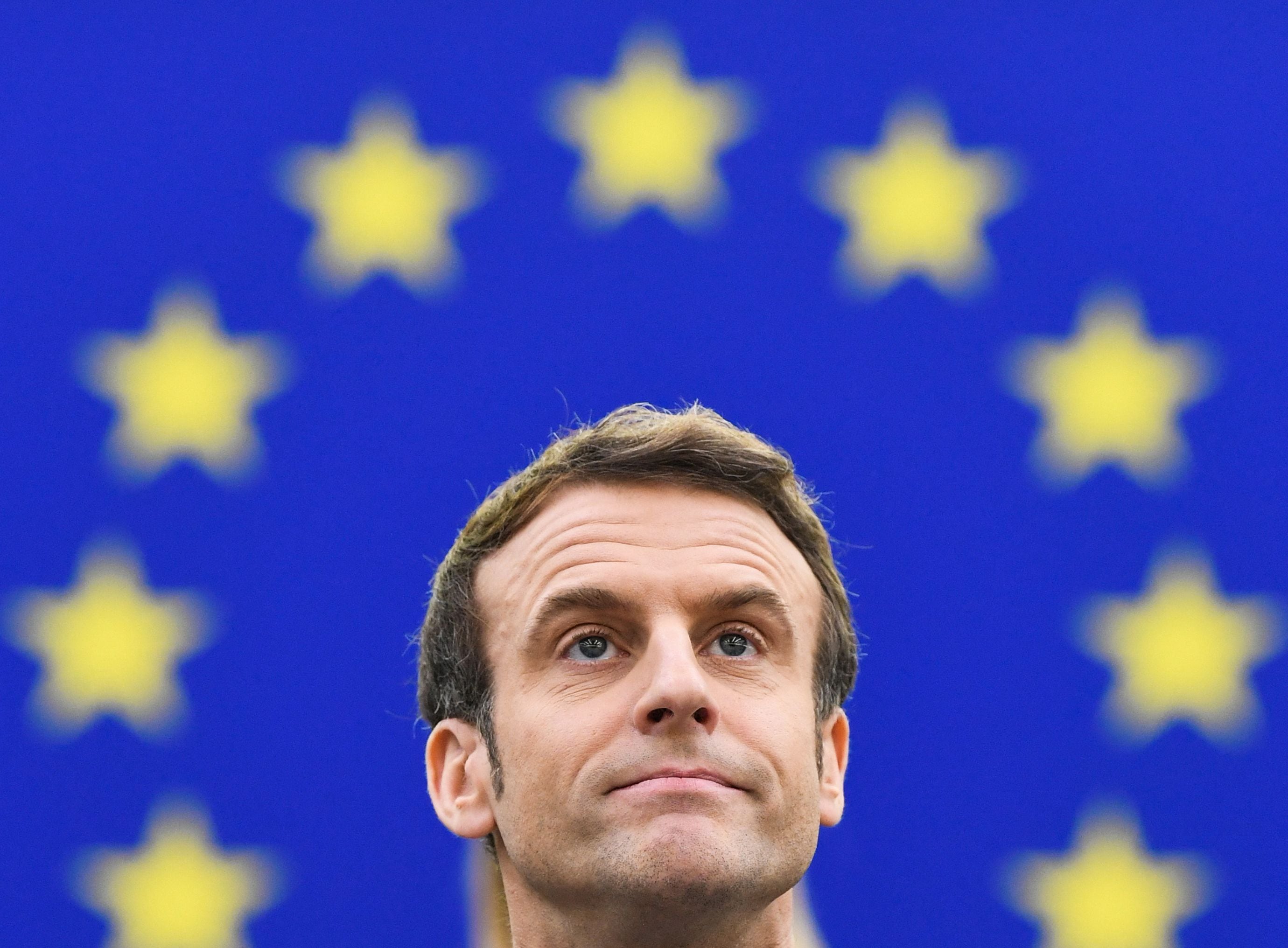To say that in each election the countries risk their destiny is a cliché that is not far from reality. And this feeling they have French today more than ever when they will define if their country turns to the extreme right hand in hand with Marine LePen or maintains the liberal pragmatism of Emmanuel Macron.
READ ALSO | Macron vs. Le Pen: Why are radical left voters key in France’s elections?
The polls continue to give the current president an advantage, but the difference with Le Pen continues to vary. Some polls give you up to a 15-point lead, while others narrow the gap to 10.
Although on paper you could say that Macron could have the victory assured, . More than 30% of French people do not plan to vote this Sunday, a percentage that would favor Le Penwho has tried in recent days to win over that dissatisfied voter with the management of Macron.
What differentiates both candidates? Here are some key points of their proposals:
1. Economy and pensions
Macron:
If the French have criticized him for anything in these five years of administration, it has been his neoliberal approach to the economy and social programs. The protests of the ‘yellow vests’ put it in check and reinforced its elitist image and distancing towards the less favored sectors.
MORE IN WORLD | Retirement, the key issue of the second round in France and that could define the winner between Macron and Le Pen
One of the key points of his program is , a reform that he promised in 2017 and that he has not been able to achieve. This time he continues with his proposal to delay the age from 62 to 65 years, although he has said that it could be up to 64 years, which will allow him to increase the minimum pension to 1,100 euros per month.
LePen:
The far-right has focused her campaign on , a very sensitive issue for the French and which has become her main concern after two years of the pandemic and the current war in Ukraine, which has skyrocketed product prices. Thus, instead of focusing on the most controversial aspects of his plan, La Pen does not stop offering to lower the tax on fuel and electricity from 20% to 5.5%, reduce highway tolls and give more benefits to families with at least two children.
Regarding the pension reform, it proposes leaving the retirement age at 62 years and advancing it to 60 for those who started working before the age of 20 and have contributed to the system for at least four decades.
2. Immigration

Macron:
Emmanuel Macron has pointed out that immigration is “an opportunity” and defends the French tradition of welcoming foreigners. However, he knows that he must also win the votes of those who are unhappy with the arrival of undocumented immigrants. Thus, he proposes a reinforcement of border controls, the expulsion from the country of immigrants who defy public order and fight against radical Islamism.
In a direct attack on his rival, Macron has said that Le Pen’s proposal to ban the Islamic headscarf in public places would amount to “a civil war”.
Le Pen
If Marine Le Pen has been known for anything, it is for her outspoken criticism of immigration. That has been the central axis of the National Front party founded by her father -now called the National Group- and that has attracted the most nationalist French.
For this election, Le Pen has not wanted to focus on this aspect in order to soften her candidacy, but her anti-immigration policy remains one of her main proposals. Thus, it proposes prioritizing the French over foreigners in access to employment or housing, reserving social aid for French people and foreigners who have contributed at least five years, suppressing the automatic right to French nationality for those born in the country, and end family reunification. Likewise, he will “systematically” expel undocumented immigrants and criminal aliens.
3. War in Ukraine

Macron:
Before the invasion, the French president spent a lot of effort trying to convince Vladimir Putin not to start the war. But, once started, he has put the country on the side of NATO to support Ukraine, and is in favor of continuing to economically sanction Russia and receiving Ukrainian refugees.
Le Pen
The far-right has preferred to focus on the war from the perspective of how it is affecting the country’s economy. Close to Vladimir Putin, she proposes an alliance with Russia once the conflict is over, because she points out that strengthening the Moscow-Beijing axis should be avoided.
“We will have to seek a rapprochement between NATO and Russia because the worst thing that could happen for our future security would be a merger between Russia and China,” he said.
On the campaign trail, Macron accused her of having received a $9 million loan from a Czech-Russian bank close to Putin.
4. European Union

Macron:
Since Angela Merkel’s departure from power in Germany, the European Union has been left without its most emblematic leader. And there is no doubt that Macron is looking to fill that void. His pro-European and liberal approach is the axis of his foreign policy that seeks to put France in a preponderant place in the bloc.
The French president has pointed out that Europe must stop depending on the United States, Russia or China -at an energy or military level- to defend itself, be more sovereign and much more competitive.
Le Pen
As well as immigration, nationalism is one of the axes of Le Pen’s position. Her Euroscepticism and her criticism of ‘globalism’ place her at odds with the power emanating from Brussels. Thus, she is committed to reinforcing national rights over community rights, with which her victory could give the European Union one more blow, which she already suffered after ‘Brexit’.
Although in this campaign, Le Pen has said that she does not seek to remove France from the euro zone or the EU, she insists that the current functioning of the bloc is “anti-democratic” and advocates that each country decide its own rules. For her, the European Union should function more like an “alliance of free and sovereign nations”.
Source: Elcomercio

:quality(75)/cloudfront-us-east-1.images.arcpublishing.com/elcomercio/FYFKA4ETG5HZDCVVITAVDLVTRY.jpg)

:quality(75)/cloudfront-us-east-1.images.arcpublishing.com/elcomercio/V5E75TNLDJCY3LY5ZAJXJDUIUY.jpg)
:quality(75)/cloudfront-us-east-1.images.arcpublishing.com/elcomercio/DEI6WKKKSRDB3E2GHYLSIN2VYE.jpg)


